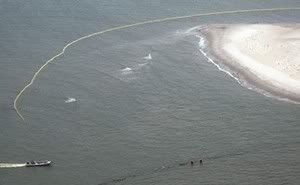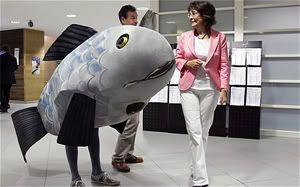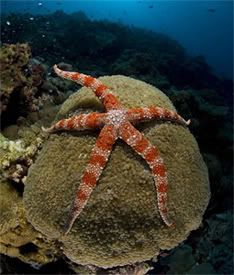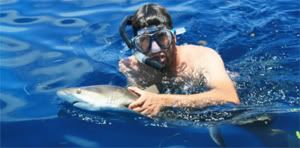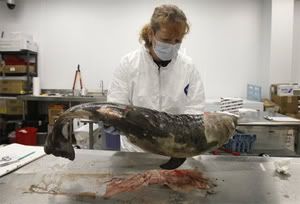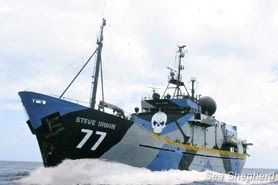
photo credit Sea Shepherd Conservation Society
The Sea Shepherd's methods might be controversial, but one thing is for sure...They get shit done. Even the Japanese admitted it.
But the Sea Shepherd's flagship the Steve Irwin is in danger of being seized and sold. Right now, the British courts are holding the vessel in Lerwick, Scotland because of a civil lawsuit brought against Sea Shepherd for the release of (allegedly) illegally caught endangered bluefin tuna by Maltese fishing company Fish and Fish Limited. The bond demanded for the release of the ship is a whopping $1,411,692.87.
But you can help! I urge you to donate whatever you can to aid this fearless organisation's flagship and to help get it back out onto the seas in time to save the Faeroese pilot whales and the great whales of the Southern Ocean.
I understand times are tough right now and money is scarce for most. Believe me, I understand...this blog ain't called the UNEMPLOYED Marine Biologist for nothin'. However, I do make a little bit of money here and there, and recently I've been really bummed about the state of everything and I've been trying to figure out what makes me happy and what makes the world a better place. I reached two conclusions: 1.) Doing everything in my power to protect and raise awareness about marine conservation is what makes me happiest, regardless of money. 2.) I would be devastated if the Sea Shepherd lost their flagship vessel and wasn't able to protect our seas in that special kick-ass way they do. Also, I hate my fucking "job", so I gave all that misery-money from my check last week to a better cause: Supporting the direct action and conservation of the people at Sea Shepherd.
Whatever you can spare, I urge you to do the same. I promise you won't regret it!
Click here to read (and watch!) a personal message from Captain Paul Watson.
